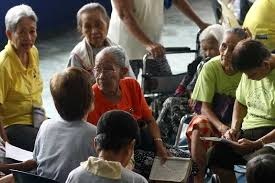MANILA, Philippines — The Philippines’ retirement income system continues to lag critically on the world stage, ranking as the third worst globally for the second consecutive year, according to the 2025 edition of the Mercer CFA Institute Global Pension Index. This persistent low ranking underscores fundamental challenges in providing adequate and secure retirement benefits for the nation’s populace.
The country received an overall score of 47.1 in 2025, a slight but meaningful increase from 45.8 in 2024. The report attributed this marginal improvement primarily to the “clarification of regulations,” suggesting government efforts to streamline rules are beginning to yield minor benefits. However, this score remains starkly below the 64.5 global average and is the third-lowest among the 52 retirement income systems evaluated in the index. The ranking confirms the urgent need for structural overhauls to secure the financial future of Filipino retirees.

The “D” Grade: Warning Signs of Major Weaknesses
The Philippines, along with other economies like Turkey, Argentina, and India, was assigned a “D” grade by the Global Pension Index. This designation means the system contains some desirable features but is plagued by “major weaknesses” that must be addressed.
The report issued a grave warning regarding the stability of the system: “Without these improvements, its efficacy and sustainability are in doubt.” This signifies that, despite recent reforms, the current framework is insufficient to guarantee long-term financial security.
In sharp contrast, the Netherlands secured the top spot with a score of 85.4. It was joined by Iceland, Denmark, Singapore, and Israel in receiving the highest “A” grade, denoting robust, sustainable systems that consistently deliver strong benefits with high integrity.
The Global Pension Index reviews an economy’s retirement income systems based on three weighted subindices: adequacy, sustainability, and integrity.
Pillar Performance: A Deeper Look at System Failures
A detailed breakdown of the Philippines’ scores across the three sub-indices reveals specific vulnerabilities, particularly in the protection of retirement funds.
1. Adequacy: Declining Benefits
The Adequacy sub-index, which measures the design and sufficiency of the benefits provided, actually saw the Philippines’ score decline to 40.6 in 2025 from 41.7 in 2024. This places the country significantly below the global average Adequacy score of 66.1.
The report characterizes the current Philippine retirement income system as one comprising a small basic pension and an earnings-related social security pension. While the system mandates a lifetime pension if members meet the minimum contribution requirements (180 months for government workers and 120 months for non-government workers), the fundamental issue is the level of support provided.
To improve Adequacy, the report recommends:
Increasing the minimum level of support for the poorest elderly.
Aligning benefits with the country’s cost of living to ensure recipients can maintain a decent standard of life.
2. Sustainability: The Only Silver Lining
Sustainability measures the likelihood of the system being able to provide benefits into the future. This was the only area of relative strength for the Philippines, with the score improving to 64.4 from 63.4. Crucially, this score is higher than the global average of 55.3, reflecting recent legislative efforts to bolster the funds’ long-term financial health.
This relatively better performance is anchored in the mandated contributions and recent reforms aimed at extending the solvency of the two main schemes: the Social Security System (SSS) for private workers and the Government Service Insurance System (GSIS) for government workers.

3. Integrity: The Critical Governance Deficit
The Integrity sub-index, which assesses governance, protection, and regulation, exposed the most serious weaknesses. While the score marginally increased to 33.2 from 27.7, it remains dramatically lower than the global average of 74.7.
Most concerningly, the Philippines was the only economy in the integrity sub-index to be given an “E” grade. This lowest possible designation signifies “a poor system that may be in the early stages of development or nonexistent,” underscoring profound deficiencies in the governance and security mechanisms, particularly within the private pension sector.
Reform Agenda: Focusing on Preservation and Governance
The Mercer CFA Institute report provided explicit policy prescriptions for the Philippines to address its systematic issues, focusing heavily on enhancing integrity and preservation:
-
Fund Preservation: The local pension system lacks non-cashout options for retirement plan proceeds. This deficiency allows funds to be withdrawn prematurely, preventing them from being preserved for the intended retirement purpose.
Private Sector Governance: There is an urgent need to improve governance requirements for the private pension system to ensure transparent and secure management of funds.
Vesting Requirements: The report called for the improvement of requirements for vesting in private sector plans to strengthen employee entitlements.
Recent Legislative Efforts: A Race Against Time
The government has already taken steps to address the financial stability of the SSS. Starting January 1 of this year (2025), the SSS implemented an increase in the contribution rate to 15%, up from 14%. This is part of the long-term, incremental hike schedule mandated by Republic Act No. 11199 (the Social Security Act of 2018).
Furthermore, a measure was introduced to directly address Adequacy concerns for existing retirees: All SSS pensioners as of August 31, 2025, began receiving higher pensions starting in September this year. Retirement and disability pensions are set to increase by 10% annually every September until 2027, while death or survivor pensions will see a 5% increase each year.
While these mandated contribution hikes and benefit increases are positive steps toward shoring up the system’s Sustainability, they do not address the deep structural flaws in Integrity and the persistent shortfall in Adequacy that continue to brand the Philippine system as one of the least secure in the world. The “E” grade in Integrity serves as a clear indictment that legislative action is needed not just for funding, but for fundamental trust and governance.





